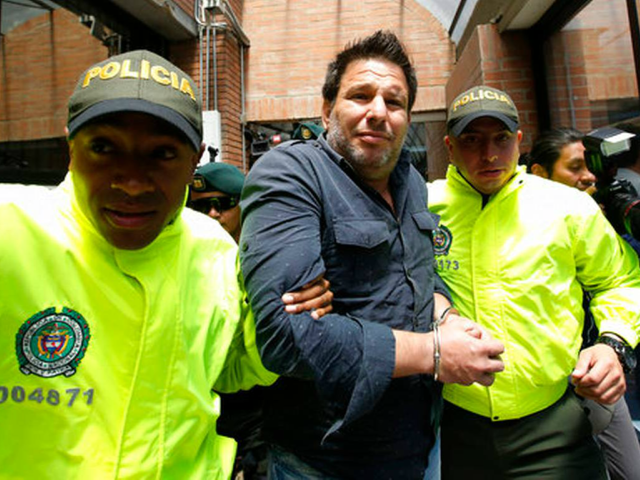A Cuban national arrested in Colombia for plotting jihad in the name of the Islamic State was planning attacks on both the Cuban and American embassies in Colombia as well as plots against members of the terrorist Revolutionary Armed Forces of Colombia (FARC), the FBI alleges, according to a report in Colombian media.
Colombian newspaper El Tiempo detailed the allegations Sunday against Raúl Gutiérrez Sánchez, who was deported twice before returning to Colombia a third time and beginning communications with people he believed were members of the Islamic State operating in Europe. Gutiérrez faces the beginning of the legal proceedings against him on Monday, the newspaper notes. Prosecutors are reportedly seeking at least 13 years in prison in Colombia for him on charges of attempting to act in the name of a terrorist organization.
As Gutiérrez plotted against multiple countries, the criminal complaint against him features intelligence from the FBI, Spain’s Civil Guard, and Colombia’s police and prosecutorial units. They reveal that Gutiérrez appeared to be attracted to the Islamic State because they were quick to kill. He also believed that their radical jihadist ideology was compatible with his own distaste for socialism and communism, despite the Islamic State’s territory in Iraq and Syria being run as a socialist utopia exclusively accessible to Sunni jihadists.
“There are no cojones left in this world to do justice. Only ISIS does anything,” Gutiérrez reportedly wrote on the encrypted app Telegram to one of his perceived Islamic State contacts, according to the government evidence against him. He suggested attacks against the Cuban and American embassies in Bogotá, Colombia, and suggested to his contacts that he could get a job as a waiter at a restaurant near one of the embassies to study the area and better plan an attack. The El Tiempo report does not indicate what kind of attack Gutiérrez was planning.
Gutiérrez also suggested to his contacts that the Islamic State should strike to kill “Timochenko,” the terrorist leader of the FARC, and Gustavo Petro, the left-wing major party candidate for president in Colombia this year. The FARC is a Marxist atheist organization and, while there is no evidence linking it to the Islamic State, its ties to the socialist regime in Venezuela have revealed evidence that the FARC aids the Shiite terrorist group Hezbollah in drug trafficking for profit in Latin America. El Tiempo does not mention whether Gutiérrez was aware of the FARC’s ties to Shiite jihadists, who are morally opposed to their Sunni counterparts.
Instead, Gutiérrez appeared to believe that the Islamic State could serve as a viable counterweight to leftist influences around the world. An attack on the Cuban embassy, for example, could make “the Colombian people aware so they prevent things like what is happening in Cuba and Venezuela,” Gutiérrez reportedly said. Both the communist and nominally socialist nation are impoverished states in Latin America where citizens face severe political repression for public opposition to their regimes.
El Tiempo did not reproduce any text from the people Gutiérrez was speaking to that would indicate that the alleged Islamic State recruiters had argued to Gutiérrez that violence against leftists was part of the Islamic State’s agenda, or that attacking targets like the head of the FARC had any political benefit for the group. Gutiérrez, according to the documentation in the report, also did not explain why he chose the U.S. embassy as a target if he was mostly concerned with attacking “communists.”
Gutiérrez’s defense attorneys are objecting that the evidence against him is “paltry” and “inconclusive,” demanding that their client be let out on bail. They do not appear to be contesting the fact that Gutiérrez was twice deported from Colombia for being present illegally before his arrest on jihad-related charges.

COMMENTS
Please let us know if you're having issues with commenting.